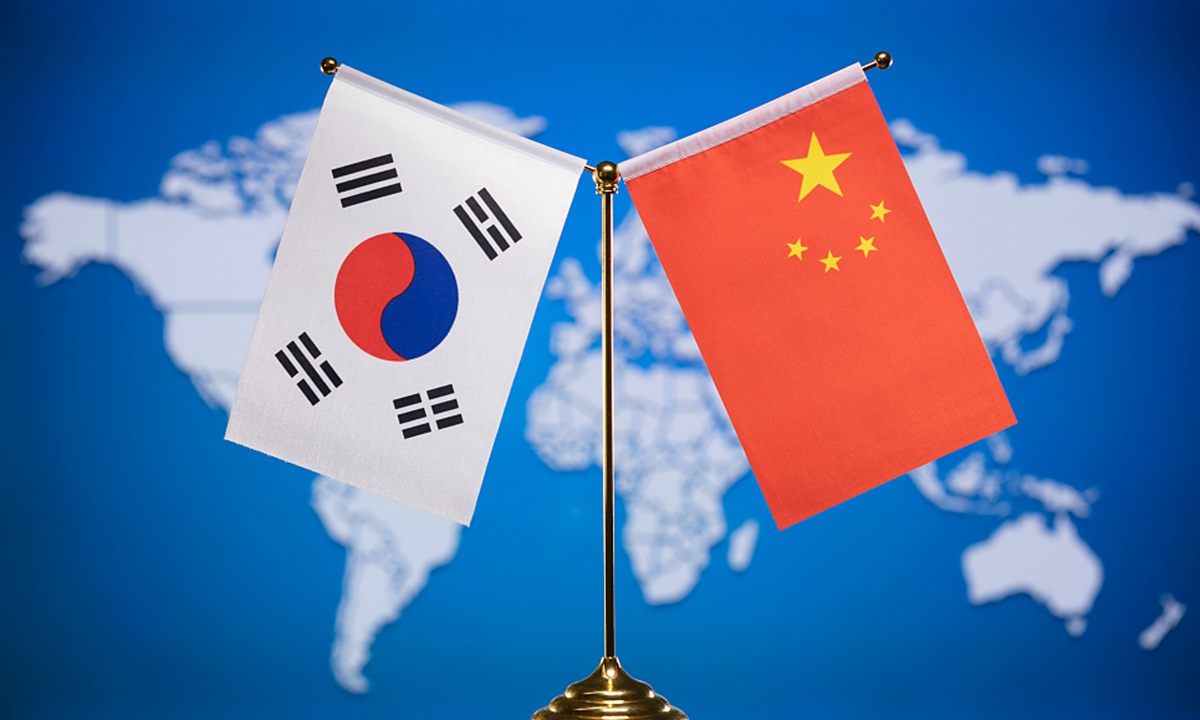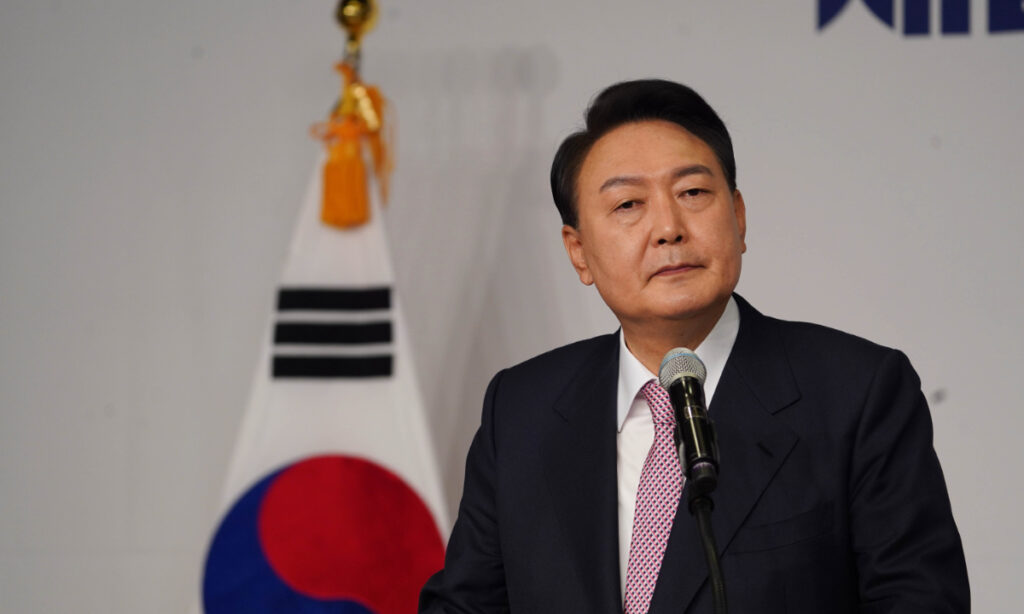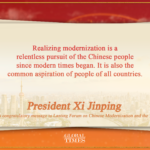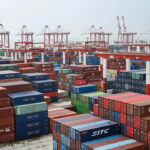Provoking China over its core interests will seriously damage the cooperative relationship with China as well as Seoul’s international reputation, Chinese experts warned, in the wake of a string of recent provocations made by the South Korean government against China over the Taiwan question. The moves of provocation were to curry favor with the US ahead of President Yoon Suk-yeol’s upcoming Washington trip, experts said.
It is an extremely “short-sighted” policy choice to please the US by sacrificing South Korea’s national interests and putting Seoul’s security in a more dangerous situation in Northeast Asia, they said.
In a recent interview with Reuters, President Yoon claimed the Taiwan question is a “global issue,” like that of the Korean Peninsula. Yoon said he opposes tensions “occurring because of attempts to change the status quo by force,” referring to China.
A Chinese Foreign Ministry spokesperson rejected Yoon’s remarks on Thursday, stressing that “the Taiwan question is purely an internal affair at the core of China’s core interests,” urging Seoul to “stay committed to the one-China principle, and prudently handle matters related to the Taiwan question.”
After South Korea summoned Chinese Ambassador Xing Haiming to protest China’s criticism, which Seoul regarded as a “serious diplomatic discourtesy,” Wang further stressed on Friday that the one-China principle is the political foundation of China-South Korea relations, and it is legitimate and justified for China to safeguard its sovereignty and territorial integrity.
While not directly naming Seoul, China’s State Councilor and Foreign Minister Qin Gang also said at the Lanting Forum on Chinese Modernization and the World held in Shanghai on Friday that “such claims go against basic common sense on international relations and historical justice. The logic is absurd, and the consequences dangerous.”
Lü Chao, an expert on Korean Peninsula issues at the Liaoning Academy of Social Sciences, told the Global Times on Saturday that provoking the bottom line of the Chinese people has shown that the Yoon administration is determined to act as a follower of the US and to curry favor with it.
President Yoon is reportedly set to make a state visit to the US from April 24 to 30 aiming to bolster the two countries’ alliance, which is actually unequal. However, domestic dissatisfaction over the government’s “humiliating diplomacy” with the US is mounting. For some South Korean politicians, the words and actions of the Yoon administration are seemingly not a wise political choice.
Lee Jae-myung, the leader of the main opposition Democratic Party in South Korea, warned on Friday that Yoon’s words on the Taiwan question will lead to unbearable diplomatic consequences, and the principle of Seoul’s non-interference on the Taiwan question should be implemented, according to media reports.
The Yoon administration has undermined the strategic cooperative partnership between China and South Korea, Lü said. “This will seriously damage South Korea’s international image and political credibility.”

China South Korea Photo:VCG
In addition, the trust and goodwill of the Chinese people toward Seoul will also be lost, according to the expert. “It will seriously damage a range of existing ties between China and South Korea, including cultural exchanges, the influx of Chinese tourists that South Korea hopes for, as well as some existing economic ties between the two countries.”
Given the intensifying situation on the Korean Peninsula caused by recent US-led military drills, challenging China’s core interests is not beneficial to South Korea’s security situation, as China has always been a firm cornerstone of stability on the Korean Peninsula and plays a moderating role, Lü added.
Li Haidong, a professor at the Institute of International Relations at the China Foreign Affairs University, told the Global Times on Saturday that South Korea should not become a pawn of the US in helping it to contain China at the expense of its own national interests, which he called a short-sighted and unwise move.
Yoon has been seeking to strengthen the alliance with the US, but Seoul’s automakers face the risk of losing ground in the US market, as the US’ Inflation Reduction Act gives up to $7,500 in tax credits to buyers of electric vehicles assembled only in North America.
The opposition party’s discontent shows that there are still sober voices within South Korea, and the contest between different forces within South Korea will have an impact on whether the country will act more responsibly on the Taiwan question, Li said.
We hope that South Korea can correctly view the importance of Asia-Pacific regional stability and the Taiwan question in its policy, Li said.




